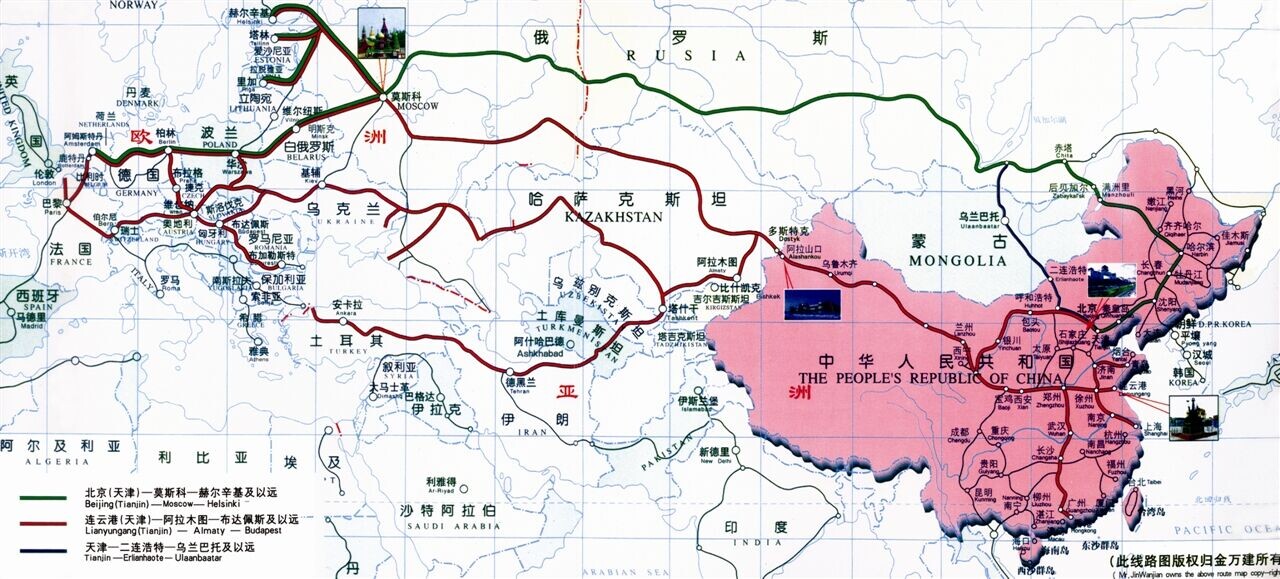‘One Belt, One Road’to boost ocean transportation history studies

The "One Belt, One Road" initiative, including the Silk Road Economic Belt and 21st Century Maritime Silk Road, supports ocean transportation history studies. (PHOTO: XINHUA)
Ocean transportation history studies has undergone a century of development in China, where the discipline has ushered in new opportunities following the introduction of the “One Belt, One Road” initiative.
Ocean transportation history is a significant component in the history of relations between China and foreign countries, covering the histories of shipbuilding, navigation, trading, emigration, religion, diplomacy, and technical and cultural communications.
China’s ocean transportation history predates the Qin Dynasty (221-206 BC). However, the scientific study of ocean transportation history only started around the late 19th century and early 20th century.
Chen Gaohua, a research fellow from the Institute of History at the Chinese Academy of Social Sciences (CASS) and CASS Member, said that since the reform and opening-up, numerous achievements have been made in ocean transportation history studies in China. Key achievements include the compilation of valuable materials, publication of reference books, translation of foreign literature and numerous archaeological activities.
Throughout the discipline’s development, the Maritime Silk Road has become a point of connection between Chinese and foreign academia. UNESCO organized scholars and news agencies from different countries to conduct investigations into the Maritime Silk Road in the 1990s. The International Conference on China and the Maritime Silk Road was also held in Quanzhou, Fujian Province, in February 1991. UNESCO has since hosted follow-up symposiums on the Silk Road in Quanzhou.
The “One Belt, One Road” initiative also supports ocean transportation history studies. Liu Yingsheng, a professor from the School of History at Nanjing University, has participated in studies of the Maritime Silk Road.
Liu said that ocean transportation history is related to multiple disciplines, including history, geography, navigation, linguistics, archaeology and international relations.
Sun Guangqi, a professor from the World Shipping Institute at Dalian Maritime University, said that ocean transportation history studies spans different periods. “It requires conducting comprehensive research by utilizing multiple disciplinary theories and research methods,” Sun added. “In the past, historians didn’t understand navigation, and people who studied navigation lacked historical knowledge,” Chen said, adding that ocean transportation history studies provides possibilities for interdisciplinary cooperation.
Take overseas trade history studies, for example. Chen said it involves construction of ports, trading management institutions and bodies, maritime routes and techniques, and ship construction. Only conducting comprehensive investigation into ocean transportation by utilizing various disciplinary knowledge can related studies be deepened, Chen added.
Sun emphasized that the knowledge of science and engineering is especially vital to ocean transportation history studies. “It is necessary to study ocean transportation history by utilizing theories and research methods of science and engineering to promote development of the discipline,” Sun said.

 PRINT
PRINT CLOSE
CLOSE